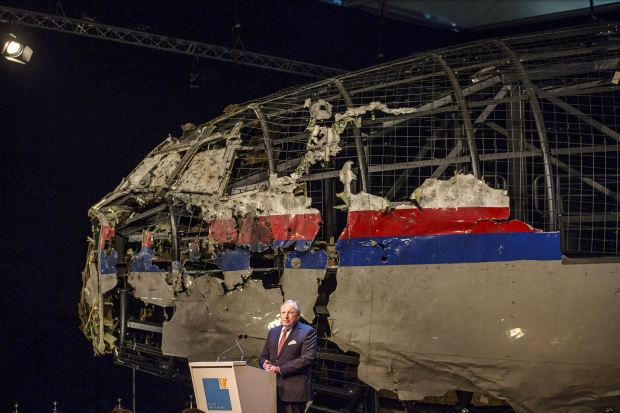
Radiosvoboda, 06.05.2014
European newspapers inform about changes in forecasts of NATO leaders in respect of Russia’s next steps in Ukraine. As the Alliance’s Supreme Commander Philip Breedlove says, “currently Russia is unlikely to directly invade Ukraine” and predicts that Putin “heads for discrediting the Ukrainian government and organizing the riots and unrest in order to pave the way for a separatist movement”. The press also reports about US financial and diplomatic 'assault forces' landing in Europe to coordinate new large-scale economic sanctions against Russia with the EU countries leaders. The observers also analyze Germany’s proposal to convene a new round of negotiations on Ukraine in Geneva and draw attention to the so-called ‘Putin’s network’ in Germany, which speaks out against the rights of Ukrainians to independence and justifies Russia’s annexation of Crimea.
Joerg Himmerlich, Reporter of the Swiss Neue Zuercher Zeitung [New Journal of Zurich] emphasizes that “there are serious voices justifying Putin’s policy and denying the right of Ukrainians to freedom not only in economic but also in political quarters in Germany”. The author believes that the so-called ‘Putin’s network’ in Germany includes chiefly a social democrat, German Vice Chancellor Sigmar Gabriel, the Bundestag’s leader of the Left Gregor Gysi, “the real star of the German Putin’s network, a so-called expert on Russia Alexander Rahr
, who has the direct contacts with the Kremlin’s leader”, and also a former German Chancellor Gerhard Schroeder, Chairman of the FDP (Free Democratic Party), Hans-Dietrich Genscher, and a number of other German politicians, experts and businessmen. According to Himmerlich, these people do not want to make a sober analysis of the dangers of Putin's Russia to Europe and, in order to understand Russia, use the words of a Russian diplomat and poet of the 19th century Fyodor Tyutchev, who once wrote, “Russia cannot be understood with the mind alone, In Russia one can only believe”. “Therefore, Joerg Himmerlich stresses, many important voices in German politics deny the right of Ukrainians to freedom and self-determination in Europe. There is a certain split-up among Germans relating to the true understanding of the freedom as well". Himmerlich also believes that “whoever believes in today's Russia in Germany, simply does not understand it”.
Brussels-based reporter at the EUObserver Andrew Rettman emphasizes that NATO has somewhat changed its estimates of the Ukrainian crisis, telling through its superiors that Russia would rather ignite the separatist unrest in Ukraine than carry out a military intervention. Furthermore, the author quotes the NATO’s American Supreme Commander Philip Breedlove, who has said this week in Canada's capital Ottawa, "I do not think that the invasion is a likely scenario today... I think that now Putin may be able to achieve his goals in Eastern Ukraine without his troops crossing the border”. Breedlove believes that “today Putin’s plan is to continue discrediting the Ukrainian government by organizing riots and unrest as an attempt to pave the way for the separatist movement.” Breedlove has described the situation in Ukraine today as “the crawling, slow invasion by Putin’s regime”. Breedlove also believes that currently there is no doubt about the expediency of NATO activities and the need to immediately “create forces which would guarantee the security of our allies”.
The authoritative The Wall Street Journal informs about the “hard attempts of the Ukrainian government to crush the resistance of separatists’ citadel in eastern Ukraine in Slavyansk” and draws attention to the numerous victims on both sides. The newspaper also highlights consultations of Obama’s administration and its European allies relating to preparation of large-scale economic sanctions against Putin’s regime, if the latter attempts to disrupt the Ukrainian presidential elections on May 25. The Journal also analyses the German proposal to convene in Geneva the new round of negotiations between the USA, EU, Russia and Ukraine aimed at strengthening “stronger political signal” to resolve the Ukrainian crisis.
Source: http://www.radiosvoboda.org/content/article/25375194.html
Translated by Katherina Smirnova, edited by Alya Shandra

